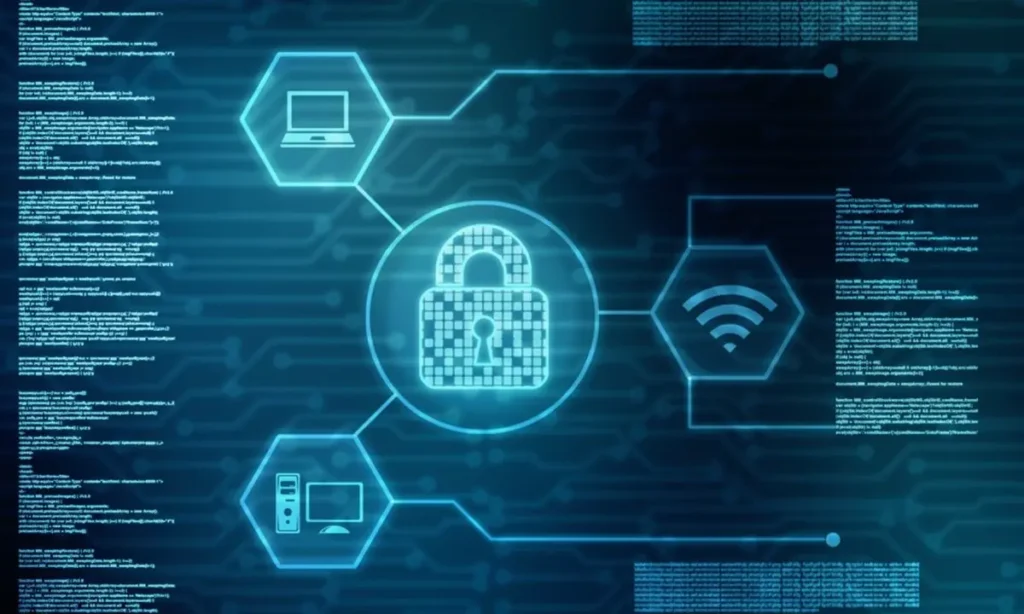Keeping our safety online is, today, more important than ever before.
It doesn’t matter if you consider yourself an expert at all things internet or if you’ve just started realizing that life online can’t be treated as an abstract concept anymore; the important thing is that you know how to stay safe.
Cyberattacks are evolving as fast as other technologies do, and you need to know or get the right tools with which to face them. Just to highlight this, research shows that 93% of organizations had two or more identity-related breaches in the past year.
So, let’s dive into the essential security tools you need to enjoy the internet without taking unnecessary risks.
- Have a Good Firewall
Firewalls block unauthorized access attempts to your network, acting as a barrier between internal networks (which you can trust) and external ones (which you cannot trust).
Why do you need a firewall?
This software can control incoming and outgoing network traffic, and it’s based on predetermined security rules. They are great at protecting you from hackers and “viruses” trying to access your private data.
What kind of firewalls are out there?
Hardware firewalls can protect your entire network, while software firewalls secure individual devices at a time. Both are fundamental if you want a secure digital environment, so combine them if you can.
- Get an Antivirus
Antivirus software is one of the most well-known security tools online, and most people are pretty familiar with the ones available on the market.
This software is designed to detect, stop, and remove malicious software in your devices. It’s basic, but it’s still as vital as it was when it first came out years ago.
Antivirus software detects over 560,000 malware attacks every single day all over the world.
The role antivirus software plays
This tool scans your computer for Trojans, viruses, worms, and other less-known kinds of malware.
It warns you, but it can also remove the threat if necessary, preventing cybercriminals from stealing your data.
Are updates necessary?
They’re not only necessary, they’re essential. Cybercriminals are developing new malware as fast as honest tech experts create interesting and useful software.
Regular updates ensure that your computer is protected from even the newest threats.
- Secure Your Activities With a Virtual Private Network (VPNs)
A good VPN should never be overlooked when we talk about software solutions for cyberattacks.
A VPN hides your internet connection behind encryption, creating a secure pathway for your activities. If you use a public or unsecured Wi-Fi network, this is a must.
Picking out the right VPN
When selecting a VPN installer, it’s important to get one that has strong encryption, high-speed connections, and, even more crucial, a clear no-logs policy.
That’s how you know you’re secure while browsing the internet.
- Password managers: protect your accounts
Over the years, the number of accounts we create on different platforms has grown. That’s when we realize how difficult it is to remember every password we’ve created.
Especially nowadays, when using the same password for more than one account is so dangerous.
That’s why password managers were created.
How password managers work
This software creates and saves a strong unique password for each of your accounts.
You won’t have to update them manually, and you won’t be risking your data by using the same one for each new account you create.
The importance of a master password
So, yes, we need an account with its password if we want to have a password manager. This software is as secure as the password you choose to log in with.
Make sure to combine numbers, letters, and special characters.
- Use encryption tools to secure your data
Other encryption tools beyond VPN can turn your data into unreadable code, and you’ll need a decryption key to access it.
These tools are made so that if your data is stolen, it can’t be used for anything anyway because it’s still protected.
When to use encryption
These tools are specially designed for when you need to protect sensitive data, like emails, personal documents, and financial information.
For businesses especially, they can be the answer for dealing with customer data and proprietary information.
Types of encryption
Depending on your needs, you can get full disk encryption, file encryption, and even email encryption. As usual, a combination of these can be the best decision for your security online.
- Back up your files
Even if you’re mindful of your security online and you take proactive measures to stay secure, your data can be stolen, lost, or compromised in any other way.
Backup solutions are available so you can get your information back in case of a cyberattack or hardware failure.
How important it is to backup regularly
This practice ensures that you keep copies of important files stored safely, online or offline. In the case of ransomware, for example, you can recover critical information.
What backup solutions are out there?
These can be cloud-based, which means your info is stored online or physically, like an external hard drive. Both are good, depending on what you need.
Final thoughts
If you want to stay safe, there’s an array of tools that you can choose from. The important part is to stay informed and to be proactive because cyberthreats are on the rise.
Cybersecurity is a process, not a one-time setup, that you can forget about. By staying updated with the latest trends and news, you’re already taking a huge step with your digital safety.
